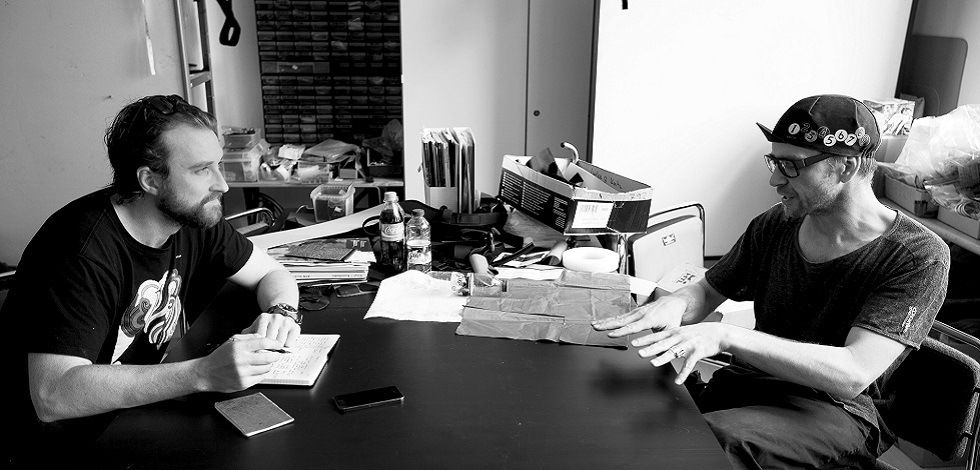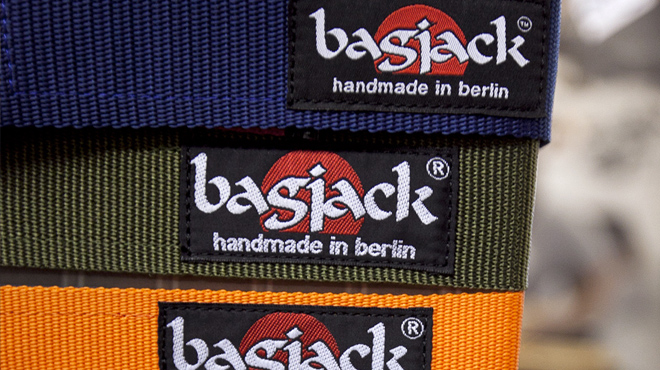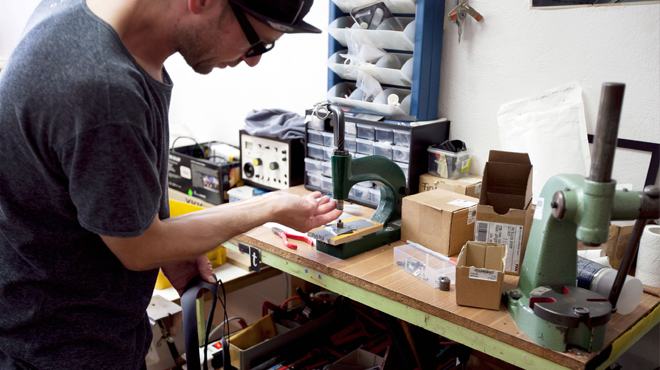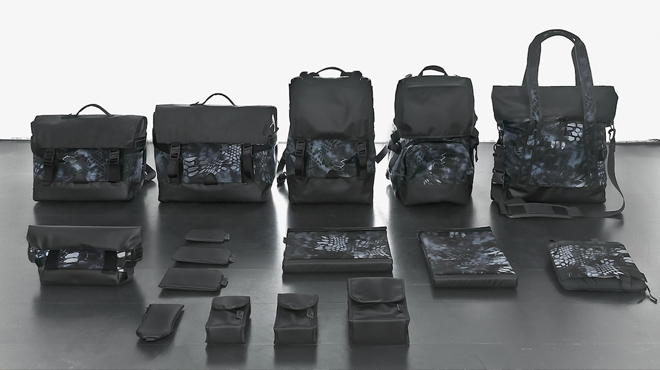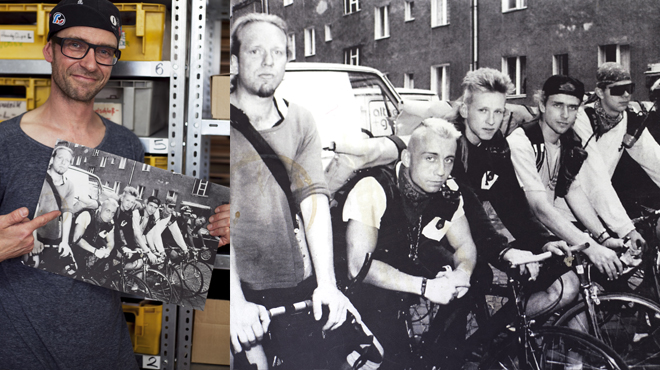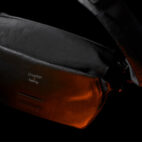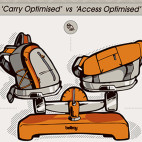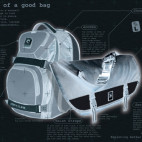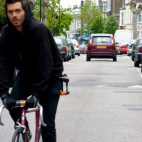The Brilliance of bagjack
It’s November 8 1989 in East Berlin. The Berlin Wall stands stoic, 103 miles of concrete, mines, dogs and machine guns. On one side, in the Soviet-run East neighbourhood of Friedrichshain, Peter Brunsberg is on the cusp of adulthood.
Between sessions cycling through cobblestoned strasses and kiez blocks, Peter is doing what most 19-year-olds in the East are doing: deciding their careers – their ‘life choice’. A graduate of ballet school, Peter is staring down a 15-year career as a professional dancer. It’s a cushy deal. Early retirement at 35, state stipend thereafter, a trajectory as secure and certain as the Wall itself.
Overnight, the Wall falls.
Berliners flood the divide, embracing after almost 30 years of separation. There is elation, champagne, dancing in the streets, a moment of unimaginable change.
For Peter Brunsberg, excitement mixes with uncertainty. It marks the moment when his young life falls into ‘a black hole’, and the story of bagjack – and his role as its founder and boss – begins.
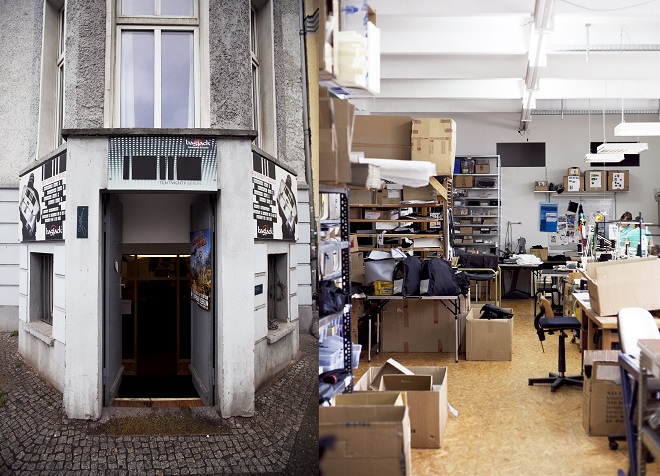
“The city was a boiling, cooking thing,” Peter reflects 25 years after the fall at the bagjack warehouse in Brueckenstrasse 1, blocks away from where the southern edge of the Wall once loomed high. “Everything was completely open.”
Donning cargos and tilted cyclist’s cap, you’d be forgiven for not immediately assuming that Peter was the boss of one of Berlin’s most dynamic bag manufacturers. bagjack, the company that Pe, as his messenger pals know him, co-founded in the post-Wall years is today Berlin’s leading producer of messenger bags, backpacks, laptop bags, totes and carry collaborations, a player not just in Germany but on the global stage. A very different stage to the one he thought he’d end up on.

While overwhelmingly euphoric, the end of the Wall was a rug-pull for many in the East. As the West’s free market forces washed through the former Soviet bloc, state guarantees were no longer a given and ‘life choices’ like Peter’s ballet career were quashed.
“I felt completely dropped,” says Pe, his blue eyes wide under fat-rimmed black specs. “It was a mix of excitement, but, you know…‘shit!’ What do I do now?” Many fled the city, leaving behind neighbourhoods of empty apartment buildings, a burgeoning squatters’ paradise.

While it’s been years since Pe’s last balançoires and ‘a la hauteurs’, he remains a consummate performer. Warm, comical, eminently chatty, he shuffles us around his factory, proudly showing off bagjack’s latest wares: the ‘Stealth Tec’ line crafted from lightweight polyester and wax canvas; a revolutionary lightweight pack soon to be launched in the Japanese market. His hands fly through every feature and function, all classily hidden, craftily built in.
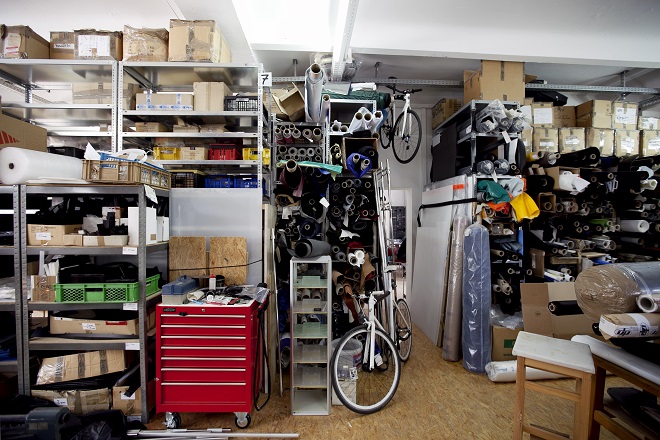
The factory buzzes with orders. I hear the hum of sewing machines, the beeps and grinds of a huge laser cutter slicing precision shapes, the scent of fresh fabrics, German talkback radio in the background. Peter points to a wall of fabric rolls temporarily unorganised from the relentless pace of orders. “This is a little bit…my nightmare,” he jokes in affected English. “But, you know, we’re a production…it’s why I’m not a chain.”
The bagjack credo is ‘Handmade in Berlin’, a production mix of bespoke and assembly line construction. Pe likens it to the car industry. “Certain things are the same from model to model, the basic elements. Specifics are added afterwards, catered to each unique order”. A prototype wallet with a neat flip card system is sewed fresh off the line; Pe checks the quality, takes it to the manual stud machine, pops a fresh one in.

In the chaotic reunification years Pe reconsidered his life prospects. He took a year off, shacked up in a squat apartment, reconnected with friends and relatives from old West Germany and overseas, while making new connections in Berlin’s burgeoning skate and breakdancing scenes. Despite the uncertainty of his future, racing and skating remained core passions.
For a minute, passion almost married with vocation through an audition for the Berlin production of Starlight Express, a Lloyd Webber rock musical in which the performers famously wear roller skates. “They told me I needed to learn how to sing,” he chuckles. “I was not interested in this kind of business”.
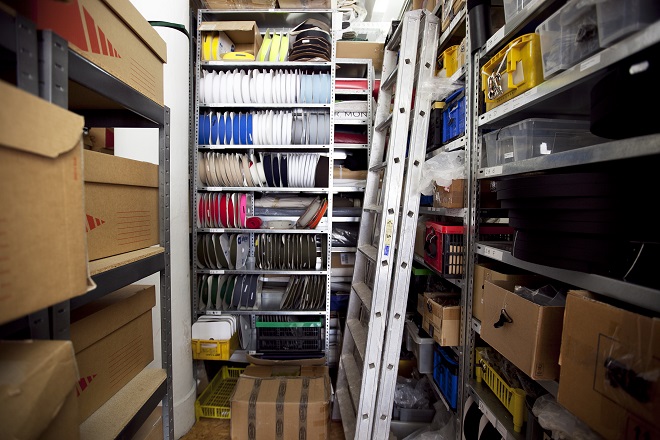
Life took a turn after watching a documentary about Berlin’s first bicycle messenger service. Pe decided to become a bike courier, a role that gave sufficient freedom for a 20-year-old living in a city going through extraordinary times. If the squat life wasn’t wild enough, there was a dance music revolution on the doorstep, creative emancipation, an endless party. “A lifestyle I enjoyed…but I never will miss,” Pe smirks.
Riding the streets of Berlin, Pe and his messenger pal, Vossi, saw a niche – the need for high-quality, durable messenger transport bags that looked good as well as fit the purpose. They began sewing their own bags late at night in the lounge rooms of their Scharnweberstrasse squats, mishmashing worn postal service bags with pieces of sport bag and rain jackets on a Dürrkopp treadle drive table sewing machine.

The old Dürrkopp is now tucked away in a maze of storage boxes at the rear of bagjack HQ, an area Pe calls “the museum”. We lose him briefly in the cardboard; he returns with a box full of relics, stained and worn, the first bagjack messenger bags. They weren’t bagjack back then. They were the ‘Dirty Double’, an apt self-deprecation and tongue-in-cheek hint at certain extracurricular activities.
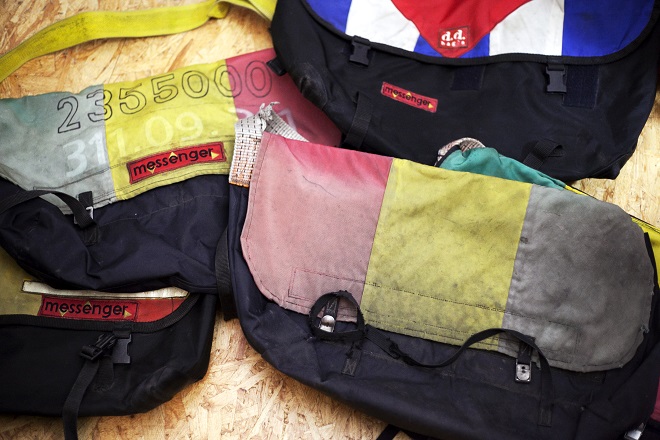
The Dirty Doubles impressed their messenger compadres. Soon, Pe and Vossi were taking orders, adding refinements, new fresh Jamaican and Cuban fabric designs, all from makeshift ingredients. “We told our messenger friends to cut off the belts from crashed cars and bring them back for us”.
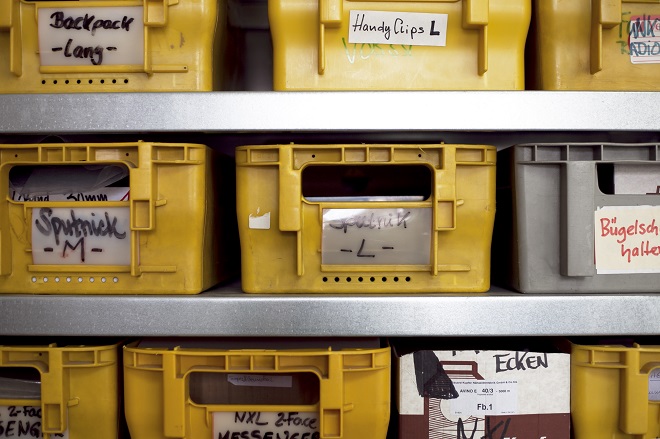
Hoping to never see a sewing machine again, Vossi eventually gave up on the bag game, leaving Pe to do with it as he saw fit. Rebranding to bagjack, it’s been a relentless trajectory of refinement and progress ever since. “We were never precious about design…always happy to review, to adapt”, he tells me, as serious as he is playful. “We wanted to always get it right”.
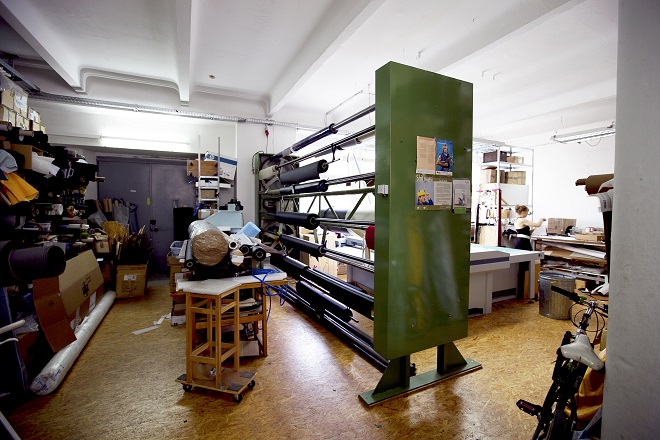
Part of the company you build comes down to the company you keep, and bagjack’s success has seemingly rested not just on Pe’s adaptability and persistence but also through the supportive messenger tribe and community that surrounds him.

Pe was instrumental in setting up the first ever Cycle Messenger World Championships in Berlin in the early ‘90s, an annual urban cycling competition where messengers from around the world get together to showcase their skills in a range of events. “It was my gate to the world,” says Pe of the event, which in the early days took him to Canada, the US, a new and exciting destination every year. The international messenger community became his global family, lifelong compatriots that he keeps in close touch with. “Friends are so important,” he waxes nostalgically. “I get the ‘goose skin’ when I think about that”.
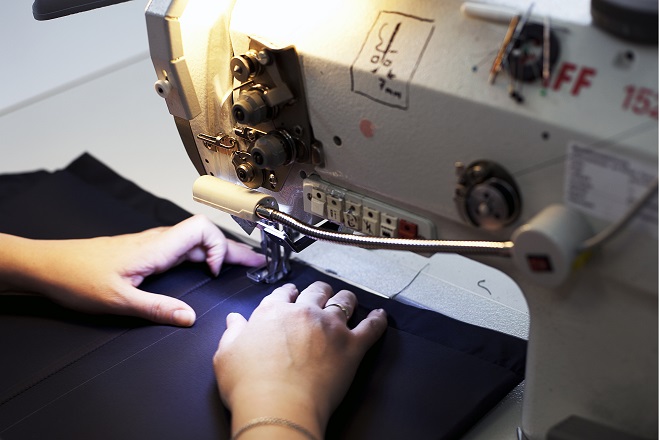
As enthused and energetic as when we met him an hour and a half earlier, Pe riffs on his vision for bagjack’s future in an office room tucked away from the hum and rumble of the production line. Functionality is mentioned repeatedly, so too sensoric textiles, embedding smart technology in bags and delivering them “in a good ecological way”. He hands me a fabric sample selected for a new line of wallets – one that blocks Wi-Fi and GPS signals for consumers who are fed up at being tracked by Big Brother. He calls it the “NSA-buster”.

Research and development is an integral element of the bagjack mix. “We are always looking for new collaborations,” Pe says. “Always researching new fabrics and methods.” He unleashes a fold-down canvas box designed for film companies to house LED camera lights; another tailored for a Berlin medical organisation to transport artificial hearts. It’s a long ride from the nascent days of the ‘Dirty Double’.
As we shake hands to shoot off, I glimpse another relic: a black and white photo on a filing cabinet in the hall – Pe and Vossi, their messenger posse, lined up on an early ‘90s Berlin street, eyes loaded with attitude. Pe grips the picture, smiles for the camera, black and white of the past a stark contrast to the lucid present.
German philosopher Heinrich Heine once described Berlin as a city that never is, “for it is always becoming.” Fashioned from the chaotic rubble of 1989 and beyond, the same might be said of Peter Brunsberg and bagjack.
*Photography by Honor Kennedy
Check out Cam and Honor’s photo and word project on Instagram or #CHKBerlin





 Carry Awards
Carry Awards Insights
Insights Liking
Liking Projects
Projects Interviews
Interviews
